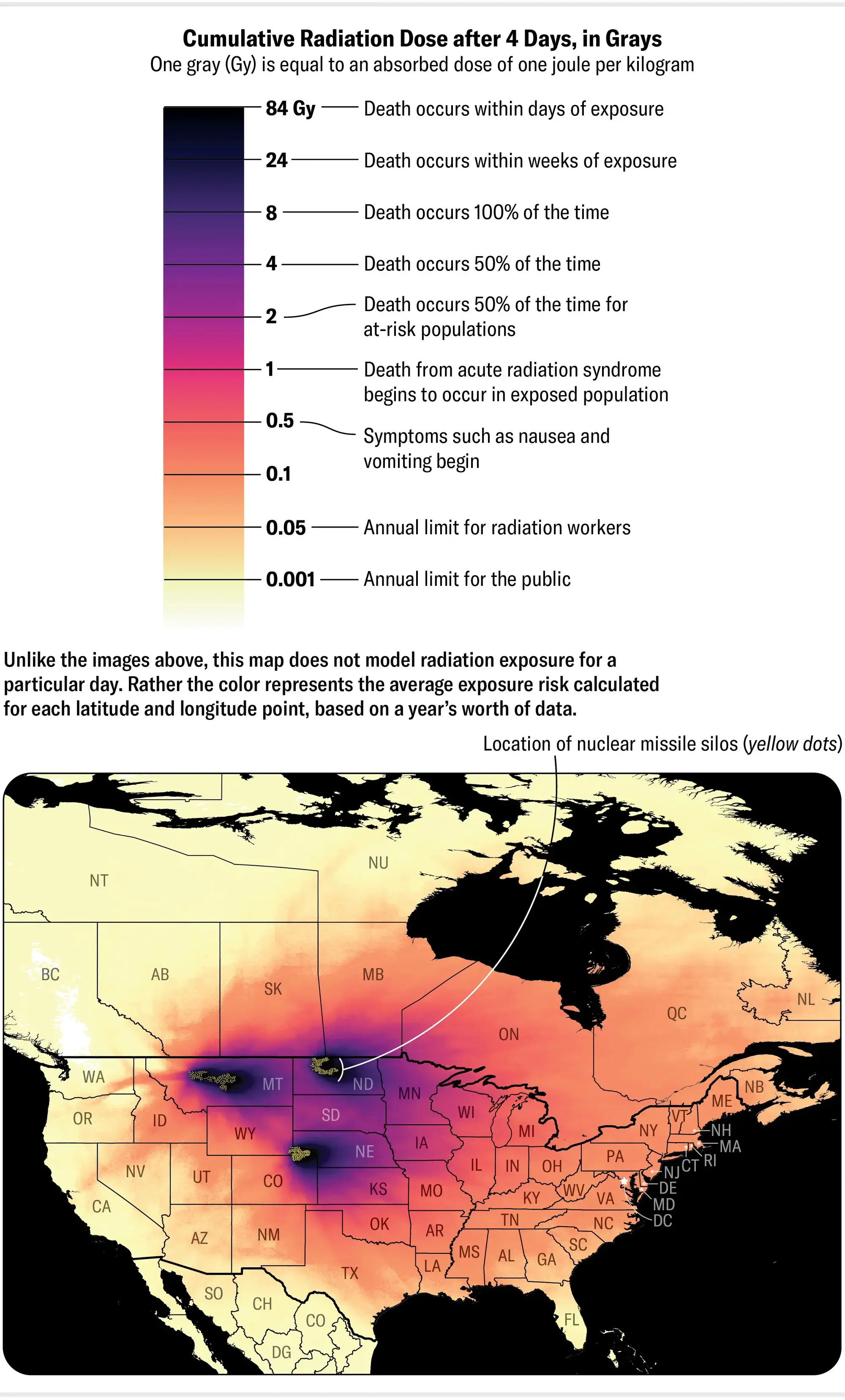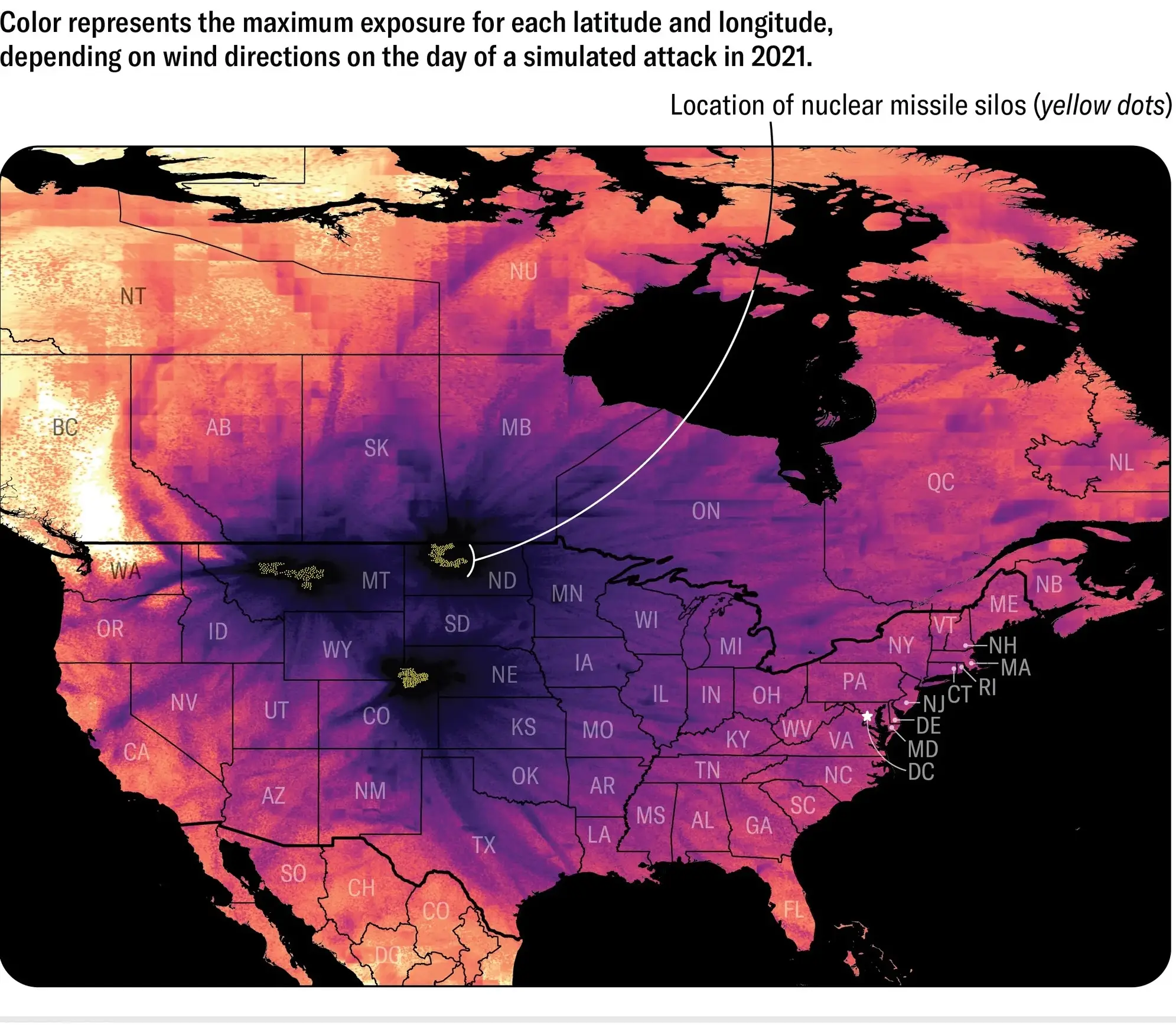
Nuclear war has been an ever-present threat in the United States for over half a century at this point, and while it's not something you have to wake up every morning in fear of, the damage it could have on large parts of America is simply staggering.
If the United States was to become locked in escalated conflict with one of the world's other leading nuclear powers like Russia or China, there remains the risk that a foreign government would look to strike down existing missile silos located in North Dakota, Montana, and Nebraska.
Not everyone has the privilege of the president's 'doomsday plane' that would fly high-ranking officials to safety in the event of a weapon strike, and the possibility of Trump's 'Golden Dome' scheme still might not be enough to deter any potential attacks.
You could always head to a nearby nuclear shelter, many of which were built during the Cold War, but if you're anywhere near the strike's destination then you should probably head to any of the safest states across America to ensure your best chance of survival.
What are the safest states in the event of nuclear war?
As reported by Newsweek, there are key parts of America that would appear to fare better in the event of a nuclear weapons attack, providing that the aforementioned silo locations were the point of impact.
Advert
Ranking states based on 'exposure rates' - which are measured in Grays (Gy), which are equal to one joule per kilogram of radiation - here are the areas with the lowest risk, typically measuring between 0.001 Gy and 0.5 Gy:
- Maine
- New Hampshire
- Vermont
- Massachusetts
- Rhode Island
- Connecticut
- New York
- New Jersey
- Pennsylvania
- Delaware
- Maryland
- District of Columbia
- Virginia
- West Virginia
- North Carolina
- South Carolina
- Georgia
- Florida
- Alabama
- Mississippi

These all are the furthest from the Midwest strike zones, which typically register anywhere between 1 Gy and 84 Gy - with scientists estimating that just 8 Gy is enough to kill people 100% of the time, with increasing amounts simply reducing the time at which it takes for radiation to cause death.
New York might be a particularly safe bet due to the sheer number of nuclear shelters still present in the city, as you'd not only be within a relatively safe distance from the strike, but you'd be able to shield yourself from most of the dangerous radiation within the confines of the bunker.
How devastating would a nuclear attack be on America as a whole?
Unfortunately, that estimation of radiation exposure does not account for the weather conditions of any particular day, and instead is based on a year's worth of average data, so if you took into account a particularly windy period then the dangers increase significantly.
One simulation of a specific day in 2021 shows that almost all of America would be exposed to at least 2 Gy worth of radiation, which causes death around 50% of the time for at-risk populations, and effectively nowhere across the United States would be completely safe from a nuclear attack in a more realistic scenario.

Speaking to Newsweek, John Erath, the Senior Policy Director for the Center for Arms Control and Non-Proliferation explained:
"While those who live near military facilities, ICBM silos in the Midwest or submarine bases along the coasts might bear the most immediate and severe consequences of a nuclear attack, there's no question: ANY nuclear war of weapons detonation would be bad for everyone."
Erath continues, outlining that "nowhere is truly 'safe' from fallout and other consequences like contamination of food and water supplies and prolonged radiation exposure."
Christian G. Appy, Director of the Ellsberg Initiative for Peace and Democracy at the University of Massachusetts Amherst, added: "Even a relatively 'small' nuclear war would cause a nuclear winter famine that would kill at least a billion people."
So, realistically there is no way to be completely unaffected by a nuclear strike in the United States, and while some areas would undoubtedly be hit worse than others, the country would suffer significantly as a whole.
